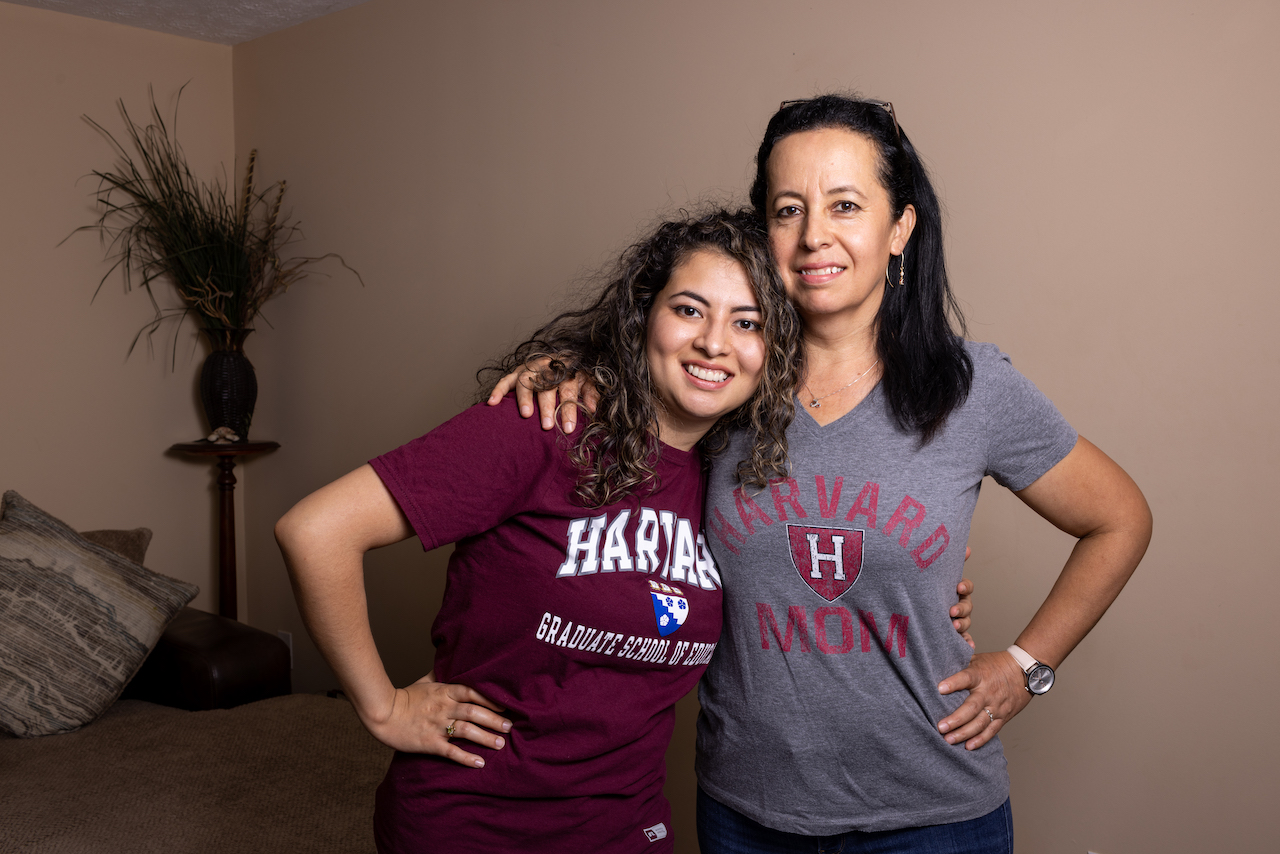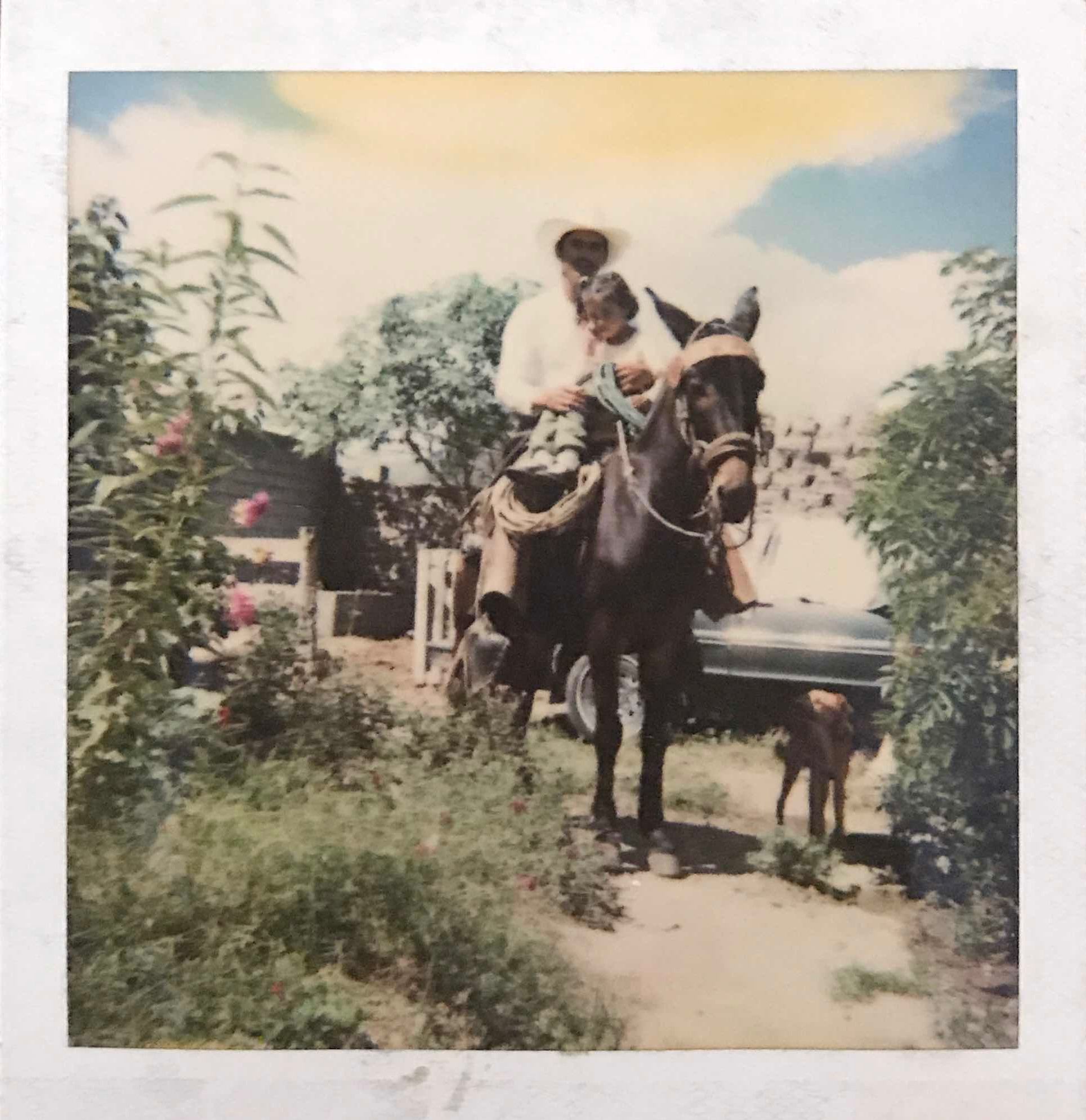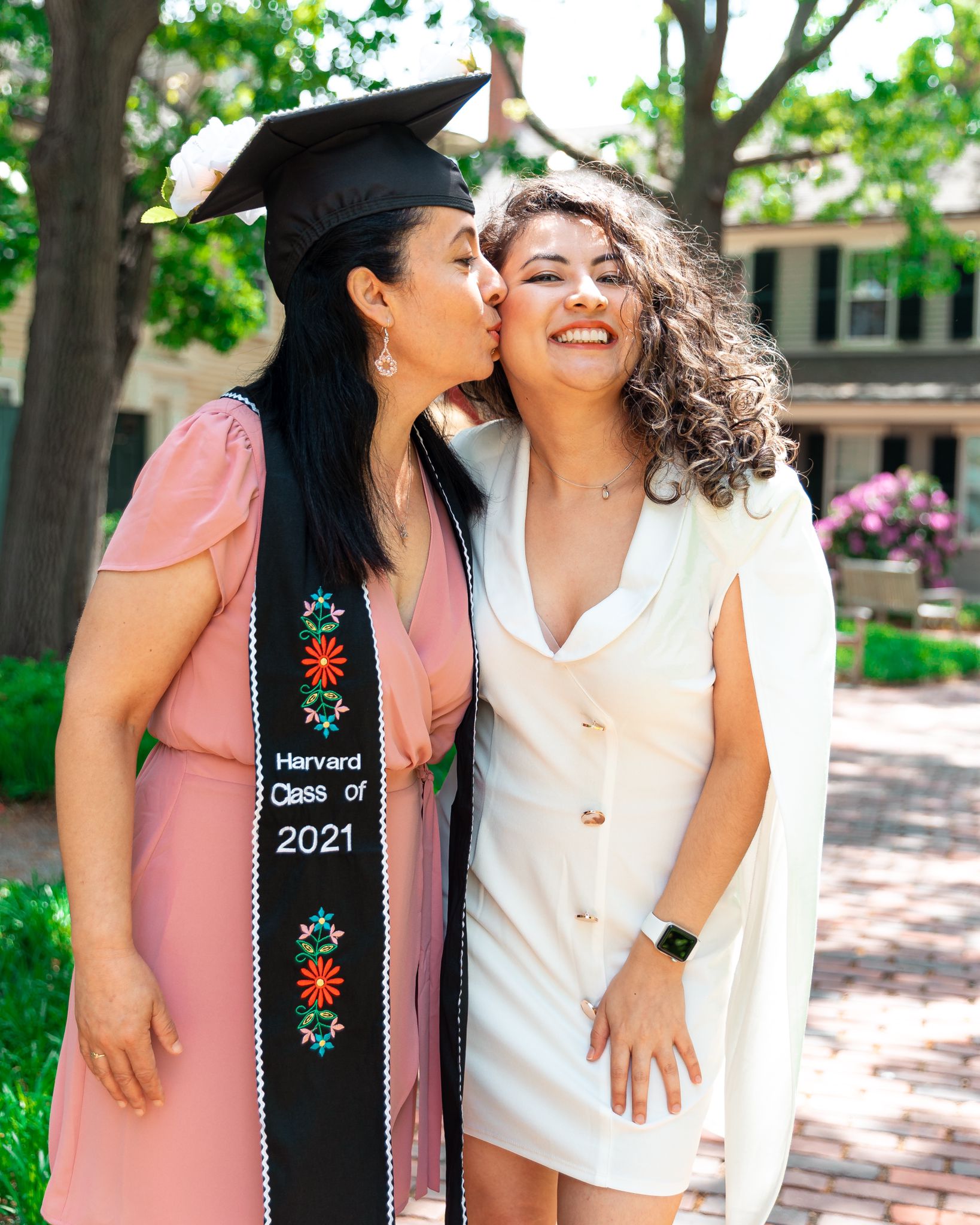
The road to Harvard
Learn about the path that Mexican Nataly Morales had to take to become the 1st gen of her family to study at Harvard University with the support of her mother.
On a plane bound for El Mezquital (Mexico), Nataly Morales and her mother, Veronica Morales, received the great news. In her inbox, Nataly had the admissions notification confirming her acceptance to Harvard University, where an average of 50,000 people apply. However, only about 2,000 undergraduates are accepted each year, and, currently, 12.5% of the students who make up the class of 2025 are Hispanic.
“Do you remember, Mommy?” The young woman asked Veronica during the interview with AL DÍA. “Do you remember that we cried, that we shed tears and then hugged each other?”, continued Nataly, addressing Veronica, who was wearing a T-shirt that read “Harvard Mom”.
Nataly started her master’s classes during the pandemic, so her first semester was entirely online. At that time, her father was diagnosed with terminal cirrhosis. After years without direct contact with him, Nataly and Veronica decided to care of him in his last days of life.

On the day of her graduation as an Education student, held last May, Nataly decided to pay tribute to her mother. In front of the long steps of Harvard, the young woman put her cap and gown on Veronica while being filmed by her aunt. Nataly uploaded the video to Linkedin and, immediately, it went viral. “We graduated from Harvard, Mom”, she said on the recording.
Currently, the post has 43,346 reactions and has been shared 720 times. Since then, Nataly has been invited by several companies and organizations to give lectures and talks to Latino students interested in higher education.
“I was just doing my photo shoot when out of nowhere I thought of all that my mom has sacrificed and all the examples she has given me to become the first in the family to get a college education here in the United States”, said the recent graduate.

Nataly knew she wanted to be part of the Harvard Education program as soon as she attended the Latina Empowerment and Development conference, whose purpose is to motivate and raise awareness of the impact of Latina women in the professional world. The creation of educational gatherings like these helps more young Latinos establish networks and contacts for the benefit of their higher education.
“My mom has always been my inspiration”
El Mezquital is a municipality located in southwestern Mexico, specifically in the state of Durango. It has more than 40,000 inhabitants and 800 villages. But in the “little town” where Nataly was born there are only a few left. Of the 3,000 people who live there, Nataly confesses that a large number emigrated to the United States out of economic necessity and in search of better professional and educational opportunities for their families. Data Mexico statistics states that by 2020, 65 % of the population of El Mezquital was living in extreme poverty.
Nataly’s mother also decided to leave her life in El Mezquital to hurdle one of the most dangerous barriers: crossing the border. She did so at the age of 28 and with no knowledge of English, while Nataly was a 5-year-old girl.
Since then, Veronica has worked very hard to put bread on the table. Like many immigrants in different states, she has been working for 12 years in the poultry industry, also known as poultry farms. She gets up every day at 4 a.m. to get ready and go to work at the factory about 5 minutes from her home in Gainesville, Georgia. After spending hours processing chickens, which sometimes exceeds 10 hours of work, she gets back home to do housework and go to bed at 8 p.m., just enough time to rest and get back to work the next day.
According to the Economy Police Institute, 50 % of the people who work in chicken processing in the United States are Mexican descent and, mostly, immigrants.
“We came to the United States because we were very poor in El Mezquital. We were looking for more opportunities for Nataly, for her to study and get ahead”, said Verónica in an interview with AL DÍA.
And so it has been. Since Nataly began her studies, she has stood out for her leadership and interest in higher education. First, she obtained her high school education at Chestatee High School in Georgia. Then, she chose to pursue her bachelor’s degree at the University of North Georgia, becoming the first generation in her family to go to college.
She managed to travel to Peru and Spain as a scholarship student and mentor Latino and first-generation students so they could study abroad on an all-expenses-paid basis. But what really changed her life was the internship she did in the U.S. Congress as part of the Congressional Caucus Hispanic Institute’s initiatives to increase Latino student representation in the Legislative.
“It was an experience that helped me a lot and it was wonderful. However, I felt small and I was like ‘What am I doing here? What do I have to contribute to this big institution of Government?’. I didn’t know how to network and I didn't feel represented because in Congress most of our senators are white and that’s where I got that fear and imposter syndrome. But when I was afraid I realized that I did have the experience, that the barriers I have faced are very valuable and that I have to continue advocating for my Latino community, for myself and for not being afraid to be who I really am”, said the 26-year-old.
RELATED CONTENT
Just two months ago, Nataly completed her studies at Harvard, where she got a master’s degree focused on educational administration and university development. In addition, she completed a certification in English-Spanish translation. Although before obtaining the certification, Nataly was already helping her mom translate and interpret what she was told at doctor's appointments, legal documents and daily errands.
“I am very thankful that during all this time, my mom has talked to me about the importance of keeping Spanish and the culture. She doesn’t want me to forget Spanish and I feel she has done a very good job. To this day, I don’t forget it. When I was 5 years old and in kindergarten, the first challenge I had was that my name was pronounced differently in English. At first I didn’t respond to the teacher because I wasn’t used to hearing my name that way. But there was a point where I got frustrated, I got angry and yelled at my teacher: ‘I didn’t call myself that! My name is Nataly!’”, the young girl revealed about the language barriers faced by English Language Learners (ELL) when they arrive in the country.
Nataly also had no Latino professors until she came to Harvard. This means more than 20 years of education without Latino representation in a classroom. The lack of racial and ethnic inclusion and diversity in schools and universities is also reflected in statistics over the years. Based on data from the Hispanic Star platform, only 8 % of teachers in the United States are Latino.
“When I was at Harvard, it was the first time I heard students speak several languages, including Spanish, because they came from different parts of the world and Latin America. And I was like ‘Wow, that’s nice’. But that was not my experience when I was an undergraduate in Georgia. Several times when I spoke Spanish, I noticed that other American people looked at me in a bad way. And that was not my experience at Harvard. It was common to hear people talking in many languages”, Nataly added.
The Importance of Education for the Latino Community
“When I was having a super stressful day at school, I would always think to myself that if my mom could risk her life crossing the border, how can I not be able to apply to college?”, said Nataly.
For both the young woman and her mother, education is a priority. So do 83 % of Latinos, who see education as a core issue for their community and family, according to data from the Hispanic Star.
By 2029, Latino student enrollment is projected to increase to 14 million. Currently, 25 % of Latinos are college educated, while 50 % of Latino students are the first in their families to go to college.
Future plans
Nataly will soon launch an education consulting agency to help more Latinos get into college. She will also begin offering translation services and motivational speeches.
To preserve her Mexican roots, Nataly will work with a group of local artisans to make and customize the stoles of the graduation gowns with details referring to Mexican culture and tradition.
Recommendations for Latino Students
“To not be afraid to ask for help, to network and to find someone on social media or LinkedIn and tell them: ‘I’d like to learn a little more about your experience with your studies’. A simple startup can get you to a place like Harvard. That’s what I did. I sought out mentors, sought out people who were already at Harvard and asked them about the process. I annoyed a lot of people, but I graduated”, Nataly laughed.











LEAVE A COMMENT:
Join the discussion! Leave a comment.